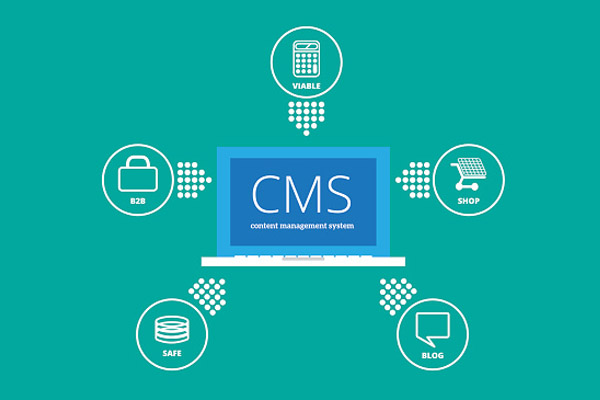close

157 Views - 04/07/2023
 Otter AI Chat acts as a collaborative ChatGPT designed specifically for meetings
Otter AI Chat acts as a collaborative ChatGPT designed specifically for meetings
Otter AI Chat acts as a collaborative ChatGPT designed specifically for meetings
AI transcription service Otter.ai has launched a new AI Chat feature with the ability to interact with multiple meeting participants in real time
 Otter AI Chat acts as a collaborative ChatGPT designed specifically for meetings
Otter AI Chat acts as a collaborative ChatGPT designed specifically for meetings
AI transcription company Otter.ai has announced the launch of Otter AI Chat, a new AI-powered meeting tool that can provide real-time Q&A support and create meeting-specific content.
AI Chat acts as a meeting participant — answering questions, collaborating with attendees, and creating content based on meeting data. Users can message each other and the AI engine through the new feature, making Otter AI Chat an active participant in meeting discussions.
According to a recent study conducted by Otter.AI, more than 70% of professionals already use some form of AI in their work, and over 86% believe their work will be much different within a year because AI tools will revolutionize the way teams work and collaborate. The study surveyed 1,500 office workers in the US and UK across a variety of industries.
Most of the AI technologies that are making headlines lately have come in the form of Large Language Models (LLMs), such as ChatGPT, which are trained on public data or the internet. This means they have no insider knowledge of the company, said Sam Liang, co-founder and CEO of Otter.ai. LLM provides an interaction of just one person talking to an AI model, a dynamic very different from the reality we see in most meetings where many people talk to each other.
"This is why we designed a new chat model that supports multi-speaker AI chat, making the AI a participant and making it participate in the conversation," he said.
Otter AI Chat has three main functions: providing answers, facilitating collaboration, and creating content. While the AI-powered summarization capability has been launched since the beginning of the year by most other companies developing productivity apps, Otter's new feature differs in that it can summarize and respond questions about what is being said during meetings in real time, as opposed to providing an overview of written documents or a meeting summary after it happens, according to the company.
In meetings where Otter AI Chat is a participant, attendees will be able to ask the tool about points of discussion or important decisions made earlier in the meeting — for example, whether there are any questions questions are asked about a particular project or event. Using the context available from the automated transcript, Otter AI Chat will be able to provide the answer.
Additionally, during a meeting, attendees can communicate in writing with each other and with Otter AI Chat to seek clarification on specific points without interrupting the meeting to ask questions out loud.
Once the meeting is over, Otter AI Chat can create action items, summaries, follow-up emails, blog posts, and other content that participants may need after the meeting is over.
"Otter AI Chat has knowledge of the user's own meeting data, which means it can provide a much more personalized service to the user," Liang said.
Creating large models of spoken language
According to Otter, the platform uses its AI to transcribe more than 1 million spoken words per minute, providing a data source for the development of what Liang says the company is calling the Large Spoken Language Model.
The model is based on millions of hours of conversational data, Liang explains, adding that this makes the model more difficult to develop because conversational data has a lot of differences from the written documents that the LLM transmits. system is trained.
"Written documents are usually more formal, they are very systematic and structured," he says. "But verbal communication, which tends to be more dynamic and involves multiple speakers... Intonation and sentiment make a lot of difference, as even the same word is said in a different way. can also mean different things.
Liang said that while Otter has adopted the term Large Spoken Language Model, it doesn't mean that this type of model will be used exclusively by the company, but Otter can move fast in developing the technology. as it already has a huge dataset of replicated meetings available for training purposes.
"We have a pretty strong advantage," he said.
The transcription and summarization capabilities for Otter AI Chat have both been developed in-house, and the company is using a combination of its own systems and several external APIs to build the Large Spoken Language Model, although Liang said the confidentiality agreements meant he could not specifically disclose who those third-party vendors were.
He also emphasized that from day one, Otter had strict privacy and security policies in place to ensure users own everything and that data can only be used for training purposes if the user use specific opt-in. In addition, any data processed through Otter AI Chat is stored only in Otter and is not available for use by any third-party vendors whose APIs have been implemented.
Otter AI Chat will begin rolling out to users today, with the expectation that all users will have access to this functionality within the next seven days. Otter AI Chat will be available to all users on all plans, however, free users will be limited to five questions per meeting. Paid users will have no limit.
AI Chat acts as a meeting participant — answering questions, collaborating with attendees, and creating content based on meeting data. Users can message each other and the AI engine through the new feature, making Otter AI Chat an active participant in meeting discussions.
According to a recent study conducted by Otter.AI, more than 70% of professionals already use some form of AI in their work, and over 86% believe their work will be much different within a year because AI tools will revolutionize the way teams work and collaborate. The study surveyed 1,500 office workers in the US and UK across a variety of industries.
Most of the AI technologies that are making headlines lately have come in the form of Large Language Models (LLMs), such as ChatGPT, which are trained on public data or the internet. This means they have no insider knowledge of the company, said Sam Liang, co-founder and CEO of Otter.ai. LLM provides an interaction of just one person talking to an AI model, a dynamic very different from the reality we see in most meetings where many people talk to each other.
"This is why we designed a new chat model that supports multi-speaker AI chat, making the AI a participant and making it participate in the conversation," he said.
Otter AI Chat has three main functions: providing answers, facilitating collaboration, and creating content. While the AI-powered summarization capability has been launched since the beginning of the year by most other companies developing productivity apps, Otter's new feature differs in that it can summarize and respond questions about what is being said during meetings in real time, as opposed to providing an overview of written documents or a meeting summary after it happens, according to the company.
In meetings where Otter AI Chat is a participant, attendees will be able to ask the tool about points of discussion or important decisions made earlier in the meeting — for example, whether there are any questions questions are asked about a particular project or event. Using the context available from the automated transcript, Otter AI Chat will be able to provide the answer.
Additionally, during a meeting, attendees can communicate in writing with each other and with Otter AI Chat to seek clarification on specific points without interrupting the meeting to ask questions out loud.
Once the meeting is over, Otter AI Chat can create action items, summaries, follow-up emails, blog posts, and other content that participants may need after the meeting is over.
"Otter AI Chat has knowledge of the user's own meeting data, which means it can provide a much more personalized service to the user," Liang said.
Creating large models of spoken language
According to Otter, the platform uses its AI to transcribe more than 1 million spoken words per minute, providing a data source for the development of what Liang says the company is calling the Large Spoken Language Model.
The model is based on millions of hours of conversational data, Liang explains, adding that this makes the model more difficult to develop because conversational data has a lot of differences from the written documents that the LLM transmits. system is trained.
"Written documents are usually more formal, they are very systematic and structured," he says. "But verbal communication, which tends to be more dynamic and involves multiple speakers... Intonation and sentiment make a lot of difference, as even the same word is said in a different way. can also mean different things.
Liang said that while Otter has adopted the term Large Spoken Language Model, it doesn't mean that this type of model will be used exclusively by the company, but Otter can move fast in developing the technology. as it already has a huge dataset of replicated meetings available for training purposes.
"We have a pretty strong advantage," he said.
The transcription and summarization capabilities for Otter AI Chat have both been developed in-house, and the company is using a combination of its own systems and several external APIs to build the Large Spoken Language Model, although Liang said the confidentiality agreements meant he could not specifically disclose who those third-party vendors were.
He also emphasized that from day one, Otter had strict privacy and security policies in place to ensure users own everything and that data can only be used for training purposes if the user use specific opt-in. In addition, any data processed through Otter AI Chat is stored only in Otter and is not available for use by any third-party vendors whose APIs have been implemented.
Otter AI Chat will begin rolling out to users today, with the expectation that all users will have access to this functionality within the next seven days. Otter AI Chat will be available to all users on all plans, however, free users will be limited to five questions per meeting. Paid users will have no limit.
Most Viewed

Application and impact of information technology in health care
485 Views - 04/07/2023

Apple is serious about Industry 4.0
465 Views - 04/07/2023

Apple is serious about Industry 4.0
465 Views - 04/07/2023

IT Execs shares a strategy for managing digital and cyber trends in 2023
392 Views - 04/07/2023

IT Execs shares a strategy for managing digital and cyber trends in 2023
392 Views - 04/07/2023

The smart home jury has yet to make a point, AI can help
391 Views - 04/07/2023
# Tag
News in the same category

Apple Vision Pro: A game changer in space computing
278 Views - 04/07/2023

Tech Talent Trends: Easy Recruitment, Upskilling in the limelight
272 Views - 04/07/2023

Apple is serious about Industry 4.0
465 Views - 04/07/2023

IT Execs shares a strategy for managing digital and cyber trends in 2023
392 Views - 04/07/2023

Otter AI Chat acts as a collaborative ChatGPT designed specifically for meetings
158 Views - 04/07/2023

Why tech jobs are evaporating
128 Views - 04/07/2023

























